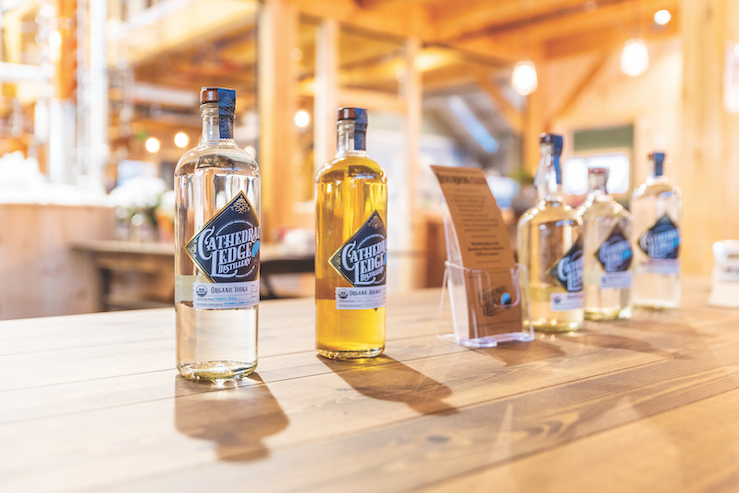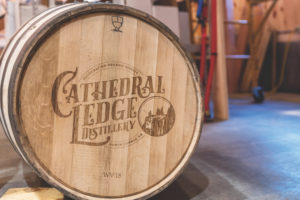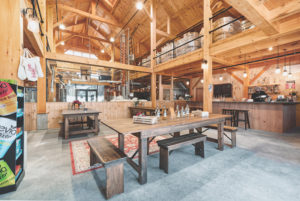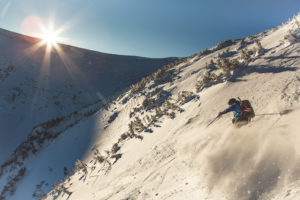
For decades, the Mount Washington Valley has been touted as one of the East Coast’s most renowned ski destinations. But until recently, the region has been off the radar for those searching for craft beers, wines and spirits.
In December, Cathedral Ledge Distillery opened its doors in North Conway, less than two months after Ledge Brewing began operations just minutes up the road.
Christopher Burk, who owns the distillery with his wife, Tracy, is unlike most people who open distilleries — he had never distilled spirits before. In fact, he had been working in financial services from his home in Denmark, Maine, when he decided he wanted to do something different.
“I wasn’t really enjoying it anymore and wanted to do something different and more tangible,” Burk said of his career. “I grew up in a small farm town in Vermont called Barnet, and I have a lot of respect for farmers. Being connected to them is really exciting.”





